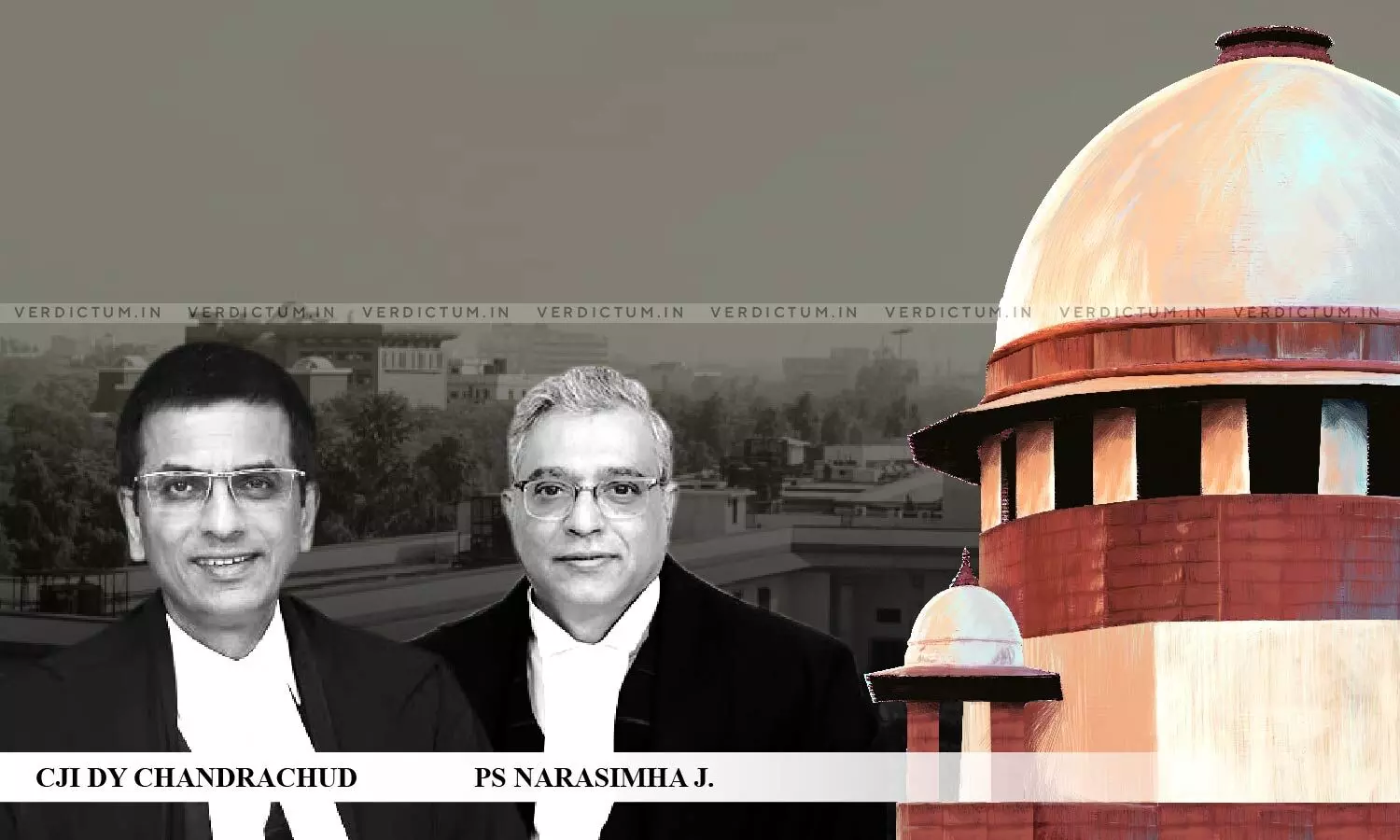
HC's Direction To Give 72 Hours' Notice To An Accused If State Intends To Arrest Him Is Manifestly Incorrect In Law- Supreme Court
 |
|The Supreme Court has set aside the direction issued by the Bombay High Court to the State to give 72 hours' notice in case the State intends to arrest an accused.
The Bench of CJI DY Chandrachud and Justice P.S. Narasimha observed that "The direction issued by the High Court to the effect that 72 hours' notice should be given to the first respondent in the event that the State finds it necessary to arrest him in connection with any complaint pertaining to a cognizable offence at the behest of the Joint Registrar (Audit) is manifestly incorrect in law."
In this case, the Bombay High Court while hearing an application for Anticipatory Bail filed by the respondent, directed that the respondent should be given 72 hours' notice in case the FIR is registered against the Respondent and a cognizable offence is made out and the State intends to arrest him.
It was submitted before the High Court that several FIR were also being filed on the basis of audit report pertaining to Seva Vikas Co-operative Bank of which the applicant was Ex-Chairman.
Senior Advocate R. Basant appeared for the Petitioner and Senior Advocate Dama Seshadri Naidu appeared for the Respondent.
The Court while vacating and setting aside the direction relied upon the decision of the Court in the case of Union of India v Padam Narain Aggarwal & Others (2008) 13 SCC 305 and observed that such a direction could not have been issued by the High Court.
The Court held that "The direction to the effect that 72 hours' advance notice should be given to the first respondent before effecting an arrest, in the event of a complaint being registered in respect of a cognizable offence, is accordingly vacated and set aside."
Accordingly, the petition was disposed of.
Cause Title- Vijaykumar Gopichand Ramchandani v. Amar Sadhuram Mulchandani & Ors.
Click here to read/download the Order